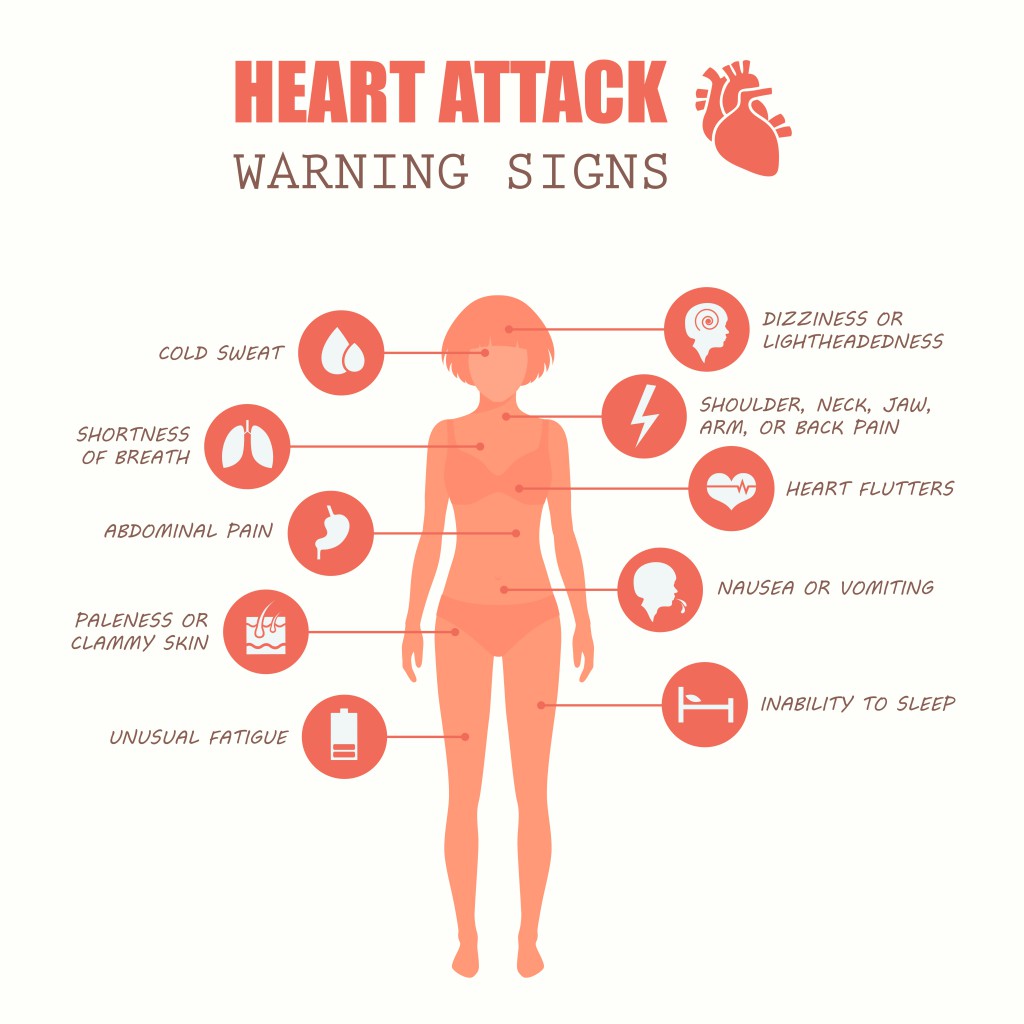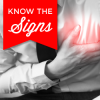The Centers for Disease Control and Prevention noted that 1 in every 4 deaths in the U.S. are due to heart attacks. It is the most common cause of death in both men and women, but men are slightly more likely than women to experience this health issue. Do you know the signs of a heart attack? Read on to learn what to watch for.
What is a heart attack?
According to the National Institutes of Health, a heart attack occurs when the heart is not getting the necessary oxygen. A blockage in a blood vessel can suffocate the heart and, in turn, cut off the blood flow to the brain and body. Coronary artery disease, which makes plaque build up in the arteries, can bring on atherosclerosis (a disease of the arteries), a major cause of heart attacks. On occasion, muscle issues like spasms in coronary arteries can also lead to heart attacks.
Signs of a heart attack
Many heart attack symptoms are vague and could indicate a number of health issues. That’s why it’s helpful to know the signs ahead of time, so you can get to the hospital as quickly as possible. Here are a few indicators to look out for, according to the Mayo Clinic:
- Tightness in your chest that spreads to your jaw, neck or back. This feeling can be achy or more of a constant pressure
- Chest pain, known as angina, that occurs when you are stressed or active and goes away when you are calm and still
- Dizziness or lightheadedness that occurs suddenly
- Fatigue
- Pain in your abdominal region, including feeling like you may vomit, heartburn or indigestion
- Breaking out into a cold sweat when you haven’t been exercising or physically active
- Shortness of breath that occurs with no clear cause (such as walking up stairs)
It is important to note that no two people have the exact same heart attack symptoms. What may seem like simple heartburn in one person may be a sign of a heart attack in another. Some people have symptoms for several hours before a heart attack while others feel them momentarily before the attack.
Men and women also have varying symptoms. The CDC said that women more often report sudden sharp, burning chest pain along with pain in the jaw, neck, abdomen, throat or back at the time of an attack. The Women’s Heart Foundation wrote that women take an average of 2 to 4 hours longer than men to experience symptoms of a heart attack. This means it is extremely important to act immediately if you do exhibit symptoms.
People with diabetes, high blood pressure or cholesterol, who are overweight or physically inactive or who drink excessive amounts of alcohol are at an increased risk of having heart attacks.
If you suspect you or someone around you is having a heart attack, call 911 immediately. Try to stay calm, as getting your heart rate up in crisis can make the situation worse. So long as the person having the heart attack is not allergic to aspirin, it’s a good idea to have him or her take one right away to slow down the effects of the loss of oxygen.
If you found an error, highlight it and press Shift + Enter or click here to inform us.



